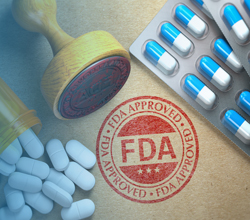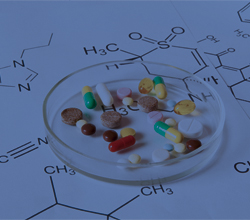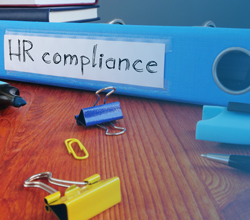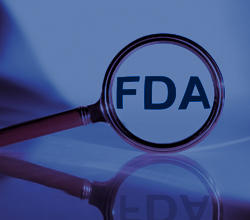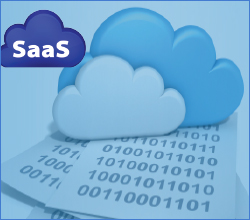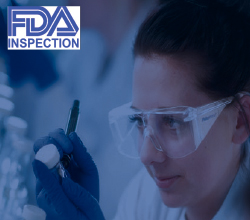
Maintaining a Validated State – PV, PM and Statistics Associated with Current Regulation
 Jerry Dalfors
Jerry Dalfors
 80 Min
80 Min
Product Id: 703637
This course will instruct attendees on establishing an approach to process control within each unit of operation to generate overall process control needed for validation. The webinar instructor, an FDA expert, will enumerate the importance of variation in enhancing a validated means of operation and the parameters that can cause variability. The Randomized Block statistical model will also be analyzed for effective validation.

Integrating Risk Management into the CAPA System
 Edwin L Bills
Edwin L Bills
 90 Min
90 Min
Product Id: 700525
This webinar will explain what FDA expects in incorporating risk in the CAPA process, what strategies can be used to assign resources to CAPA activities, and how to manage multi-level CAPA processes so that they will not run afoul of the FDA during inspections

Overview of the Medical Device Risk Management Standard-ISO 14971
 Edwin L Bills
Edwin L Bills
 90 Min
90 Min
Product Id: 700524
This medical device risk management webinar will provide attendees an overview of ISO 14971requirements and practical tips for implementing an effective system for managing risk. It will also discuss differences between the world-wide international standard ISO 14971:2007 and the Europe-only version risk management standard EN ISO 14971:2012.

Transferring Medical Device Production to a Contract Manufacturer - Decision Making Process and Procedures
 Rob Braido
Rob Braido
 90 Min
90 Min
Product Id: 702719
This webinar on outsourcing medical device manufacturing will discuss practical decision making steps you can follow to analyze whether to transfer or invest in keeping production in-house. If you decide to transfer production, then this training will detail the options and next steps to transferring it to the right facility or contract manufacturer.

Process Validation for Medical Devices - The Regulatory Approach
 Dan OLeary
Dan OLeary
 90 Min
90 Min
Product Id: 702673
This medical device process validation training will use recent warning letters to explain the regulatory requirements for process validation and what FDA Investigators look for. It will cover process validation components (IQ, OQ, and PQ), and the content of protocols and reports.

Product Complaint Investigations - The application of Lean Six Sigma methodology for U.S. FDA-Regulated Industries
 Shahbaz Shahbazi,Ray Bandziulis
Shahbaz Shahbazi,Ray Bandziulis
 75 Min
75 Min
Product Id: 702614
This webinar will discuss the use of Lean Six Sigma methodology for product complaint investigations and offer a standardized approach for FDA regulated life science companies to follow whenever product complaint investigations are needed.

The GCPs: How to Implement for Compliant Clinical Trials
 John E Lincoln
John E Lincoln
 90 Min
90 Min
Product Id: 706935
Good Clinical Practice (GCP) is an international ethical and scientific quality standard for designing, conducting, recording, and reporting trials that involve human subjects. Compliance with GCP assures that the rights, safety, and well-being of trial subjects are protected and that the clinical trial data are credible.

GAMP®5, Second Edition and Alignment with FDA’s Draft Guidance for Computer Software Assurance (CSA)
 Carolyn Troiano
Carolyn Troiano
 90 Min
90 Min
Product Id: 706932
Advancements in technology have forced organizations to rethink business models. Once controlled and orderly, these organizations are now more chaotic and complex, serving patients and customers that are better informed and with higher expectations than ever before. Work practices and tools must change to meet these challenges.

Technical Writing - Medical Devices - Writing Effective 510K, PMA, and De Novo Submissions
 Charles H Paul
Charles H Paul
 180 Min
180 Min
Product Id: 706931
In a rapidly evolving medical landscape, the significance of meticulous and effective technical writing cannot be overstated. Join us for a enlightening 3-hour webinar, "Technical Writing for Medical Devices: Writing Effective 510(k), PMA, and De Novo Submissions," where we will delve into the intricacies of crafting comprehensive and persuasive regulatory submissions. From the foundational understanding of regulatory pathways to the fine art of presenting clinical data, this webinar will equip you with the tools and knowledge necessary to excel in this critical aspect of the medical device industry.

US Market Access & Reimbursement : Medical Devices
 Robert J Russell
Robert J Russell
 60 Min
60 Min
Product Id: 706989
This targeted 60-minute U.S. Reimbursement training/webinar will help you understand and navigate the complex U.S. system for understanding product reimbursement status and potential for your Medical Device

Document the Clinical Evaluation Report (CER) for the EU MDR and CE Mark
 John E Lincoln
John E Lincoln
 90 Min
90 Min
Product Id: 706985
To document the clinical evaluation of a medical device and its output, a Clinical Evaluation Report or CER has to be compiled. The CER is an ongoing compilation of the generation, appraisal, and analysis of clinical data related to a device. It is one of the major components of the Technical Documentation File.

Reconciling/Adapting the 8D Problem Solving Process for the Life Sciences
 Charles H Paul
Charles H Paul
 90 Min
90 Min
Product Id: 706939
The 80 problem solving process developed by the Department of Defense and driven by Ford Motor Company is a worldwide method used to improve quality address customer complaints and issues quickly and efficiently. The process helps develop rapid response to customer issues and complaints and strengthens business relationship with those customers and regulatory bodies. The process helps improve quality and supports and promotes prevention rather than simply the detection of problems.

The 510(k) Mod Program, Breakthrough Technologies, and STeP
 John E Lincoln
John E Lincoln
 90 min
90 min
Product Id: 706976
What are the U.S. FDA's recently expanded, less traditional / modified pathways for novel technologies or safer products to receive clearand or approval.

US FDA Requirements for Medical Products Labeling / UDI
 John E Lincoln
John E Lincoln
 90 Min
90 Min
Product Id: 706969
The U.S. FDA has several requirement for the labeling of medical products. The key requirements are in 21 CFR 801.

Integrating Production Equipment, Processes, Systems and Procedures
 John E Lincoln
John E Lincoln
 90 Min
90 Min
Product Id: 706956
Both the U.S. FDA and EU's MDR expect documented risk-based equipment, process,systems and procedures development, integration and maintenance.

FDA Regulation of Artificial Intelligence & Machine Learning
 Jose Mora
Jose Mora
 60 Min
60 Min
Product Id: 706954
AI/ ML will revolutionize medicine by making diagnosis and treatment more accessible and more effective. FDA has regulated medical software by means of regulation and guidance for years, however, AI/ML programs fall outside the scope of these regulations and guidance. This happens because the FDA approves the final, validated version of the software. The point of AI/ML is to learn and update the following deployment to improve performance. Thus, the field version of the software is no longer the validated approved version.

Lean Manufacturing For U.S. FDA-Regulated Industries
 John E Lincoln
John E Lincoln
 90 Min
90 Min
Product Id: 706960
New and Realistic Lean Manufacturing can be a key to company success, by incorporating basic lean principles, while addressing FDA / CGMP requirements.

Best Practices for Auditing a Vendor of Computer Systems Regulated by FDA
 Carolyn Troiano
Carolyn Troiano
 90 Min
90 Min
Product Id: 706930
We will discuss the importance of complying with FDA requirements for validation of systems using technologies that have been emerging for the past couple of decades. While FDA is planning to overhaul their own infrastructure to gain efficiencies, they are also encouraging industry to take advantage of newer technology and systems. These include cloud-based systems, Software-as-a-Service (SaaS), artificial intelligence, and others.
We’ll talk about taking a risk-based approach to validation, and how to implement newer capabilities such as electronic records and electronic signatures. We’ll also cover the importance of meeting data integrity compliance.

How to Establish and Maintain Device Design and Development (Design Control)
 John E Lincoln
John E Lincoln
 90 Min
90 Min
Product Id: 706940
This webinar will provide valuable guidance to regulated companies in development and implementation of Design Control Planning and Techniques for new or heavily changed product development under 21 CFR 820.30, "Design Control", and ISO 13485 7.3. Also regulatory compliance proof of "progress against plan", and other activities requiring a planned documented rationale. It should be an important part of a company's IP (Intellectual Property).

Clinical Trial Systems: The Trial Master File (TMF) and Electronic Trial Master File (eTMF)
 Carolyn Troiano
Carolyn Troiano
 90 Min
90 Min
Product Id: 706938
Companies engaged in the conduct of human clinical trials must adhere to specific government regulatory requirements. Certain documents, content and images related to a clinical trial must be stored and maintained, and depending on the regulatory jurisdiction, this body of information may be stored in a trial master file (TMF). All of the data and documents supporting the planning, conduct and evaluation of a clinical trial must be of the highest integrity, which must be maintained through their entire life cycle. Computer System Validation will be discussed as a key methodology for meeting all of these requirements and assuring data/document integrity.

